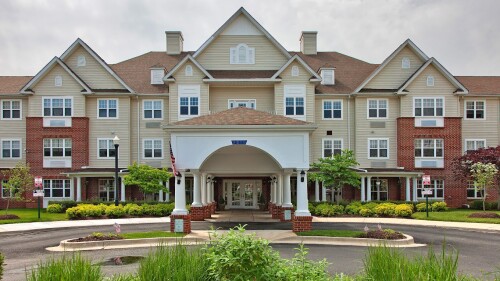This article is republished with permission from REITCafe.
The current real estate cycle is maturing after more than seven years of expansion. Real estate investment trusts (REITs) in all sectors are responding to market conditions by selling more properties than they are buying and by recycling capital to fund new development and redevelopment.
Capital is plentiful and widely available, and interest rates are low. Banks and other capital sources are increasing lending and equity investment, and even the commercial mortgage–backed securities (CMBS) market is regaining some steam. With significant capital chasing deals, property valuations are rich, and market fundamentals are healthy for most product types in most markets.
Today’s low capitalization rates make it a good time to sell, and many REITs are culling underperforming assets. Selling at high valuations allows REITs to maximize revenue, improve the overall quality of their portfolios, and reshape their portfolios to enhance future profitability. Capital from sold assets is being redeployed to pay down debt, buy back shares, and fund ongoing development and redevelopment activity. This recycled capital is important since few REITs want to issue stock in the current market, where many trade below net asset value.
| TREPP-i Survey Loan Spreads (50–59% LTV)* |
| This Week | Previous Week | Previous Month | End 2015 | End 2014 | |
| Industrial | 157 | 165 | 166 | 163 | 138.5 |
| Multifamily | 157 | 163 | 166 | 168 | 139.8 |
| Office | 165 | 178 | 179 | 168 | 148 |
| Retail | 155 | 163 | 165 | 168 | 139.8 |
| Average Spread | 158.5 | 167.25 | 169 | 166.75 | 141.5 |
| 10-year Treasury Yield** | 1.64 | 1.70 | 1.87 | 2.27 | 2.17 |
Rich pricing has made it more difficult to earn attractive returns, so REITs are pulling back on acquisitions. Still, some types of acquisitions remain attractive to REITs. Value-add transactions offer buyers the opportunity to create value and raise rents through property improvements. Some REITs with joint ventures are buying out their partners’ interests, while those that provide third-party management can opportunistically acquire properties that they manage and already know well. Still others seek large portfolio deals that can move the needle on earnings.
REITs have significant development pipelines. Some that have traditionally grown more through acquisitions than development are undertaking more building activity, since it is more difficult to achieve attractive returns on acquisitions. At NAREIT’s REIT Week conference in New York City this week, management from HCP, a health care REIT, noted that for life-science properties, they develop at a high 7 percent cap rate, but that acquisitions would occur at a much lower cap rate.
A number of REITs stated that concerns about overbuilding are overblown. They note that construction is at or below long-term historical norms and that softness in certain product types in select markets is a temporary phenomenon that will be quickly rectified after a lease-up period. Nevertheless, some REITs, like Equity Residential, noted this week that they have already cut back on their development pipelines.
Current REIT performance is healthy, but growth will not continue indefinitely. While managers are optimistic about the future, they are also working to strengthen their balance sheets and to prepare their companies for higher interest rates and the inevitable downturn that will eventually affect their business.
* TREPP-i Survey Loan Spreads levels are based on a survey of balance sheet lenders. For more information, visit Trepp.com.
** - 10 yr. Treasury Yield as of 5/27/2016.




